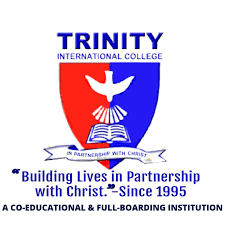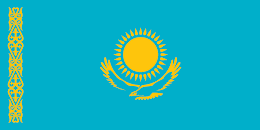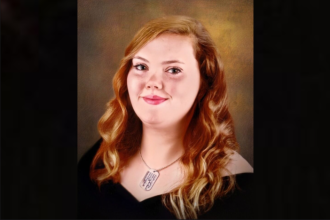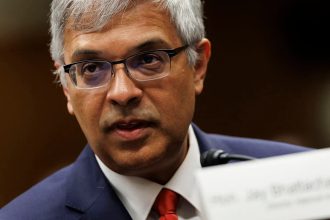The management of Trinity International College on Wednesday outlined its achievements ahead of the college’s 30th anniversary celebrations, starting from today (Thursday) through Sunday, November 23.
As part of activities marking the milestone, the Chairman, Board of Trustees of Trinity Group, Mr. Samuel Olatunji, led the management team on a courtesy visit to PUNCH Place, KM 14, Lagos-Ibadan Expressway, Magboro, Ogun State, on Wednesday.Olatunji was accompanied by the Chairman, Board of Governors, Trinity International College, Bayo Kolade; the Chairman, Board of Trustees, Trinity University, Deacon Adebowale Tade; Director of Education, Trinity International College, Oluponle Adeyemo; the Principal, Senior School, Trinity International College, Mrs Grace Adepoju; Human Resource Manager, Trinity International College, Mr Smith Mukoro; Head, Corporate Affairs, Trinity University, Michael Bamigbola; and Dare Banjoko from the Photo Unit, Mass Communication Department, Trinity University.
Kolade said the vision of the college began 30 years ago and was borne out of a deep concern for “the alarmingly declining standards of education in Nigeria.”
Kolade said, “In obedience to God’s leading and driven by a deep passion to change the narrative, a group of Christian professionals from diverse fields consisting of captains of industry, bankers, teachers, doctors, accountants, architects, pharmacists, retired military officers and education enthusiasts came together with a shared vision to provide a first-class education, combined with excellent moral and spiritual upbringing.”
The vision, he said, was built on “the timeless pillars of godliness, discipline, hard work, integrity, and excellence.”
“With this clear vision, the Trinity Group established the Trinity International College as its first institution,” he said.
He added that the anniversary commemorates three decades of dedication to academic excellence, moral discipline, and the holistic development of young people, noting that the theme of the celebration, ‘A Legacy of Excellence: 30 Years of Learning, Leadership, and Lifelong Connections,’ aptly captured “the essence of our journey.”
He said that from humble beginnings, the college had “grown to become one of Nigeria’s foremost secondary institutions.”
“Our students have always posted exemplary results, consistently excelling in various academic competitions, locally and globally. For instance, none of our students scored below 200 in the last JAMB results.
“Our alumni are making significant contributions in their chosen fields, becoming reference points in their respective endeavours and communities around the world,” he said.
While speaking, Olatunji emphasised the need for parents, teachers, school administrators and other stakeholders to be carried along by the government whenever reforms are introduced.
Responding to a question on the Federal Government’s scrapping of mother tongue as a teaching language in primary schools and its implications, he stressed the importance of research-driven decision-making in the education sector.
Olatunji said, “If you look at it critically, over the years, we have been running from pillar to post to solve our educational problems. They blame day school, they blame boarding school, and blame religious missionary school. They changed the curriculum many times. We find that all the time, we’re struggling. With all due respect, it’s like politics. We’ve tried the presidential system, we’ve tried the parliamentary system; these systems are working excellently well in different parts of the world, but nothing seems to work for us here.
“Unfortunately, when it comes to education, we don’t even respect knowledge because there is no research on what works for a school.
“In other parts of the world, before a minister of education or any ministry at all makes any reforms, the first thing you do is to conduct research, because you’re held accountable by the parliament to show that you’re going in the right direction.
“So you don’t change things overnight without doing your homework because you know you have to give an account to the parliament or the public. That is not here; overnight, they will ban this, or scrap that. It doesn’t work.”
On the challenges experienced as educators, Kolade highlighted “societal challenges” confronting students, particularly those related to parenting.
“The challenges are societal, basically,” Kolade said. “We talk about government and policies in the education sector, which we can live with, but the decadence in society (is another thing),” he said.
Kolade added, “The home is the foundation of everything and these children sent to us come from homes. The expectations that you send children to school and they will change overnight are there with some parents, and the values they inculcate into them are another thing.
“Modern-day parents, some of them, do not have quality time for their children. And when we get these children into the boarding environment, the first thing we have to deal with is the baggage (ideas) they are carrying from the homes. Recently, we had to partner with certain institutions to start parenting the parents. Some of them just don’t know what to do with the children.”
The Chairman, Board of Trustees, Trinity University, Deacon Adebowale, lamented infrastructural problems, especially bad roads, noting that this remains a major challenge for many private schools.
Looking ahead after 30 years of the college’s existence, the College’s Director of Education, Adeyemo, said, “Our vision is to provide education for future leaders, combining this with moral excellence and Christian values, and that is being achieved.
“We are looking to make more impacts, more global partnerships, and more connections. We’ve already established a university that is following the values we’ve established from the secondary school.”









